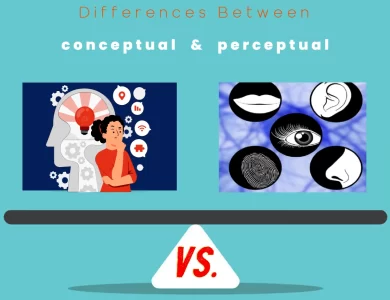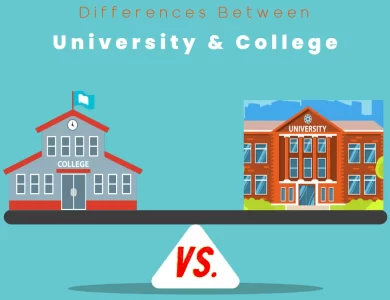Psychology
In this comprehensive collection of content, we aim to shed light on the various differences in terms and other intriguing elements that make psychology such a captivating field of study. Whether you’re a curious learner, a psychology enthusiast, or a professional in the field, this is the perfect place to explore and expand your knowledge.
-

Metacognition vs Cognition
Cognition and metacognition, two intricate processes that govern the way we think and learn, often intertwine in our daily lives. While they share a common thread of influencing our cognitive abilities, they are distinct in their nature and functions. Cognition, the powerhouse of mental activities, encompasses a vast spectrum of processes—perception, memory, reasoning, language comprehension, and problem-solving. It's the force that drives us when we read, solve puzzles, or make decisions. Cognition acts as the cornerstone of understanding the world around us, laying the foundation for acquiring knowledge and adapting to an ever-changing environment. Metacognition, on the other hand, is the introspective guide to our cognitive processes. It's the awareness and control center, allowing us to think about our thinking. Metacognition enables us to monitor, regulate, and optimize our thought processes. Think of it as the voice inside your head that assesses your understanding, sets goals, and fine-tunes your cognitive strategies. In this journey of exploration, we will delve into the distinctive contrasts between cognition and metacognition, shedding light on their roles, development, real-world applications, and how balancing these two mental forces can empower us in our quest for knowledge and personal growth. Join us in uncovering the captivating intricacies of the mind's inner workings.
-

Vygotsky vs Piaget
In the realm of child development and education, two prominent figures, Jean Piaget and Lev Vygotsky, have illuminated the path to understanding how children grow, learn, and construct knowledge. While both theorists share a common goal—to unravel the mysteries of cognitive development—their approaches and viewpoints diverge in significant ways. Piaget's Theory: Jean Piaget, a Swiss psychologist, is renowned for his constructivist theory of cognitive development. He posited that children actively construct their understanding of the world through a series of distinct, fixed, and sequential stages. In Piaget's world, development unfolds through individual exploration, with each stage building upon the cognitive accomplishments of the previous one. His theory underscores the universal and invariant nature of cognitive development, suggesting that all children follow the same developmental sequence. Vygotsky's Theory: Lev Vygotsky, a Soviet psychologist, presented a contrasting perspective rooted in sociocultural theory. Vygotsky's theory rejects the notion of fixed developmental stages. Instead, it centers on the Zone of Proximal Development (ZPD), emphasizing the role of social interaction and cultural context in cognitive growth. According to Vygotsky, learning and development are interwoven, and children thrive when they receive guidance and support from more knowledgeable individuals. His theory acknowledges the influence of culture, language, and social collaboration in shaping cognition. This blog will delve into these disparities, exploring how Piaget and Vygotsky differ in their views on language development, the role of play, assessment methods, and implications for education. By the end of our journey, you'll gain a comprehensive understanding of the rich tapestry of theories that underpin our comprehension of child development and education.
-

Perceptual vs Conceptual
In the intricate tapestry of human cognition, two distinct thinking styles weave their threads: conceptual and perceptual thinking. These cognitive modes, while fundamentally different, coexist harmoniously, shaping our understanding of the world and guiding our actions. Conceptual thinking, like an architect designing the blueprints of a skyscraper, deals with abstract ideas, principles, and intellectual concepts. It involves dissecting complex notions, forming generalizations, and drawing connections between ideas that transcend sensory details. Conceptual thinking thrives in the realm of philosophy, theoretical science, and abstract problem-solving. It shapes the language we use to discuss profound topics, the thought processes behind intricate analyses, and the foundations of our knowledge structures. On the other hand, perceptual thinking is the swift and intuitive responder to the tangible world around us. It processes real-time sensory information, guides our actions in the physical environment, and responds rapidly to sensory cues. Perceptual thinking excels in everyday scenarios where quick decision-making is crucial, such as driving a car, catching a ball, or responding to an emergency. It's the mode of thinking that allows us to interact with the world in a sensory-rich way, appreciating the immediate experiences that unfold before us. While these thinking styles have their unique strengths and applications, they often collaborate, enhancing our ability to navigate the intricacies of existence. Join us on a journey to explore the nuanced Differences Between Conceptual vs Perceptual thinking, and how they shape our world, our language, and our understanding of ourselves.
-

Social Anxiety vs Shyness
Shyness and social anxiety may seem similar at first glance, but they are fundamentally different experiences that impact how individuals navigate the social world. Shyness is a common personality trait characterized by occasional feelings of discomfort or unease in social situations. It's a natural part of the human spectrum of behavior and is often manageable and temporary. On the other hand, social anxiety, also known as social anxiety disorder (SAD), is a clinically recognized mental health condition. It involves intense and persistent fear of social interactions, often leading to severe symptoms such as panic attacks, avoidance of social situations, and irrational fears of humiliation or judgment. Understanding the nuances between these two emotional states is crucial. Shyness is typically milder, context-dependent, and often improves with time and experience. In contrast, social anxiety is chronic, pervasive across various social situations, and can significantly impact a person's daily life, relationships, and career. To shed light on the key differences and provide guidance for those affected, we've compiled an informative guide that explores the unique characteristics of shyness and social anxiety. Join us as we delve into the world of Shyness vs. Social Anxiety, offering insights to help individuals, friends, and family members better understand and manage these emotions effectively.
-

Rogers vs Maslow
In the realm of psychology, the names Abraham Maslow and Carl Rogers are akin to guiding stars, illuminating our understanding of human motivation, behavior, and self-actualization. While both luminaries have left indelible marks on the field, their approaches diverge significantly. Let's embark on a captivating journey to explore the profound Differences Between Maslow vs Rogers. Abraham Maslow, a luminary in his own right, introduced the world to the concept of a "Hierarchy of Needs." This seminal theory proposes that human needs are structured in a hierarchical pyramid, starting with basic physiological requirements at the base and culminating in self-actualization at the pinnacle. According to Maslow, individuals strive to fulfill these needs in a sequential manner, with higher-level needs only becoming relevant once lower-level ones are satisfied. This hierarchy has had a profound influence on fields ranging from management to education, guiding us in understanding the fundamental drivers of human behavior. Carl Rogers, another giant in psychology, took a divergent path with his development of person-centered therapy. Rogers believed in an innate human drive towards self-actualization and personal growth, but unlike Maslow's hierarchy, he did not view these needs as hierarchical or sequential. Instead, Rogers emphasized the importance of creating a nurturing and accepting environment to facilitate an individual's journey towards self-actualization. This person-centered approach has revolutionized the field of psychotherapy, reshaping how therapists build relationships with clients and fostering a profound sense of empathy and unconditional positive regard. As we delve deeper into the contrasting philosophies and practical implications of Maslow and Rogers, we unravel a tapestry of insights that not only enrich our understanding of human nature but also guide us in various facets of life, from therapy and counseling to education and leadership. The differences between these two visionaries reveal the myriad ways in which we can approach…
-

Learning vs Maturation
In this enlightening article, we delve into the distinctions between maturation and learning. Explore the contrasting characteristics, mechanisms, and impacts of these processes as they shape our growth and development. From the predetermined nature of maturation to the adaptable nature of learning, uncover the fascinating interplay between nature and nurture. Join us on this captivating journey of understanding the disparities between maturation and learning, and how they shape our remarkable development.
-

University vs College
Are you feeling perplexed by the terms "university" and "college"? Do you find yourself wondering what sets them apart in the realm of higher education? Look no further! In this article, we unravel the distinctions between universities and colleges, shedding light on their academic programs, campus experiences, and more. Whether you're a student navigating the college application process or simply curious about the education landscape, join us on this enlightening journey as we explore the captivating differences between universities and colleges. Universities encompass a vast array of undergraduate and postgraduate programs across various disciplines. With an emphasis on research and innovation, universities often boast cutting-edge facilities and renowned faculty members who actively contribute to their fields. On the other hand, colleges typically specialize in undergraduate education, offering programs tailored to specific fields of study. These institutions often prioritize practical skills and career readiness, providing students with a more intimate and personalized learning environment. Beyond academic offerings, universities and colleges differ in campus size, faculty-student ratios, and the overall campus culture. Universities often feature sprawling campuses with diverse resources and extracurricular activities, fostering a vibrant and multicultural atmosphere. Meanwhile, colleges offer a tight-knit community where students benefit from smaller class sizes and closer interactions with professors. Join us on this educational voyage as we delve into the captivating realm of universities and colleges. Gain valuable insights to inform your educational journey and make an informed decision about your future.






